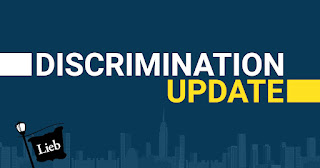The New York State Supreme Court (lowest level court with jurisdiction) issued a temporary restraining order until the sooner of a hearing or 9/22/21 concerning New York City's vaccine mandate for public education employees who instead argue for a Vax-Or-Test policy.
To see the arguments yourself, in The New York City Municipal Labor Committee et al vs. The City of New York et al, click here.
Specifically, the Order, at issue, "requires [vaccines for] all DOE staff, City employees, and contractors who 'work in person in a DOE school setting or DOE building'; and '[a]ll employees of any school serving students up to grade 12 and any UPK-3 or UPK-4 program that is located in a DOE building who work in-person, and all contractors hired by such schools or programs to work in-person' to – no later than September 27, 2021"
The teachers union makes three arguments against the Order, as follows:
- "[B]odily integrity and the right to refuse medical treatment;"
- A violation of "due process rights" because it prevents "permanently-appointed DOE and City employees declining vaccination from engaging in their employment;" and
- It "fails to provide required exceptions for those with medical contraindications or sincerely-held religious objections".
The best argument is clearly the third because "DOE has advised that it will not allow those with medical or religious exceptions – should those be accepted – to continue working in person under a strict testing regimen, or remotely with those students receiving remote instructions. Nor is it clear at this stage how those who refuse vaccination will be treated as to leaves, benefits, and other statutory rights."
While DOE may be able to refuse a given accommodation request that results in an employee working in a building, accommodations must be decided on a case-by-case basis, under binding law, and therefore, such a blanket policy is legally problematic.
As we've been suggesting from the outset, NYC Government should negotiate with the Union as to appropriate accommodations. Think about it like a class action of the cooperative dialogue (required mediation following an accommodation request under NYC employment discrimination law).
Otherwise, NYC Government will continuously find itself engaging in individualized cooperative dialogues with each employee that requests an accommodation. That is a financially infeasible result for NYC plus it will cause many teachers to bring suit following each cooperative dialogue. All of this can and should be amicably resolved through advance negotiations by giving the Unions a seat at the table.
.jpg)
.jpg)
.jpg)







